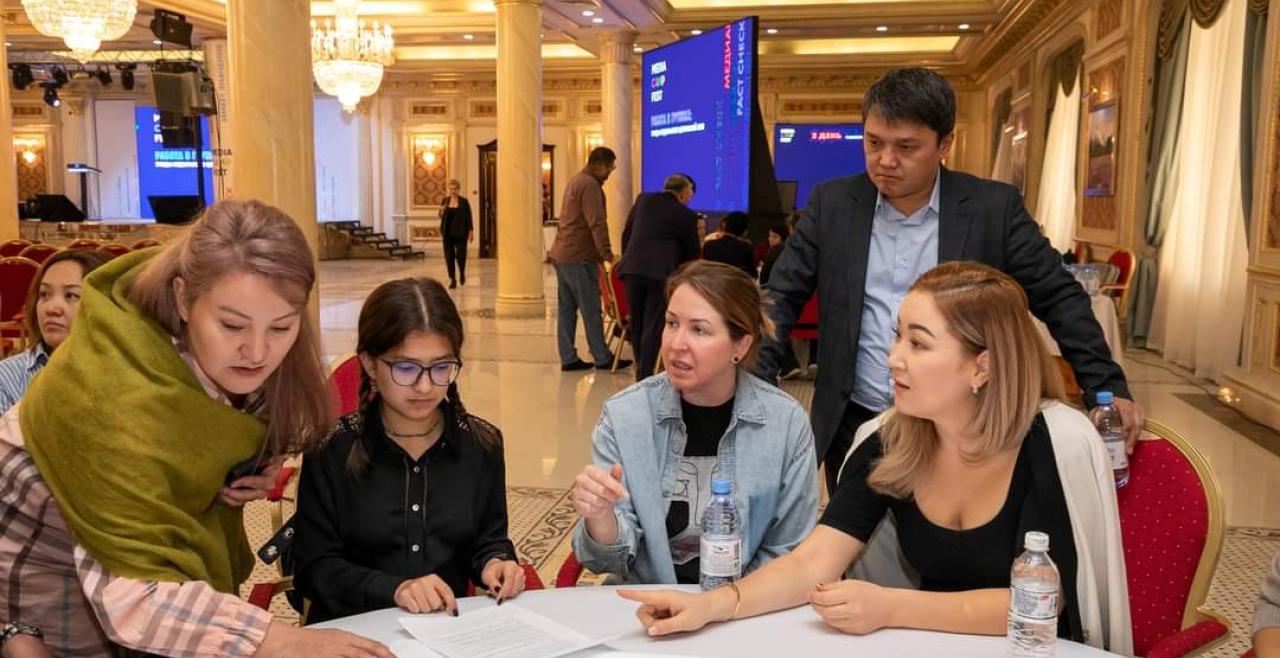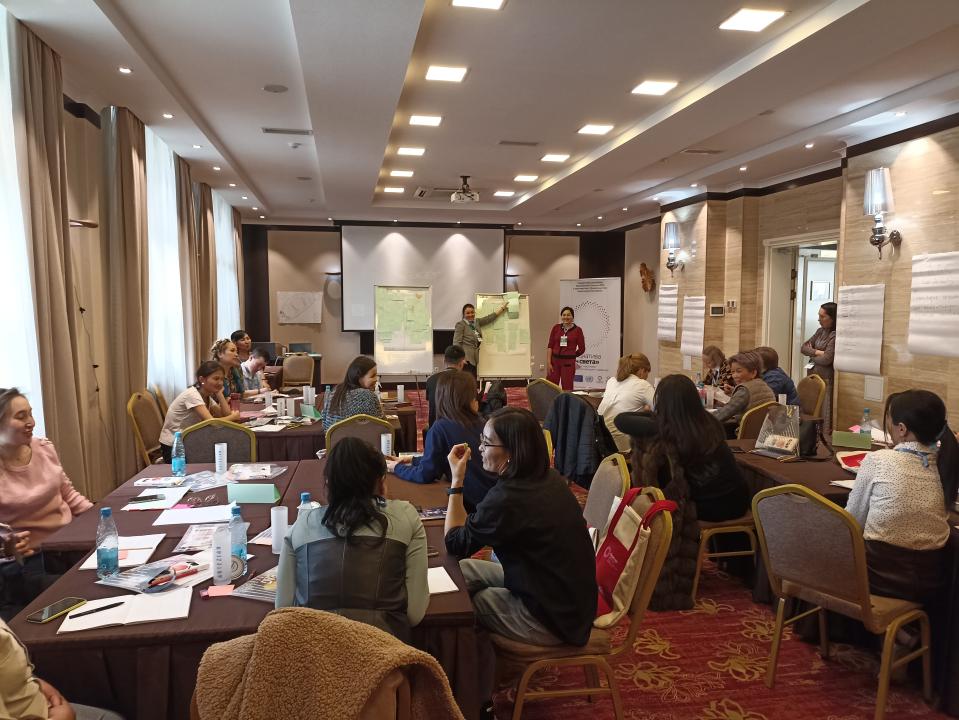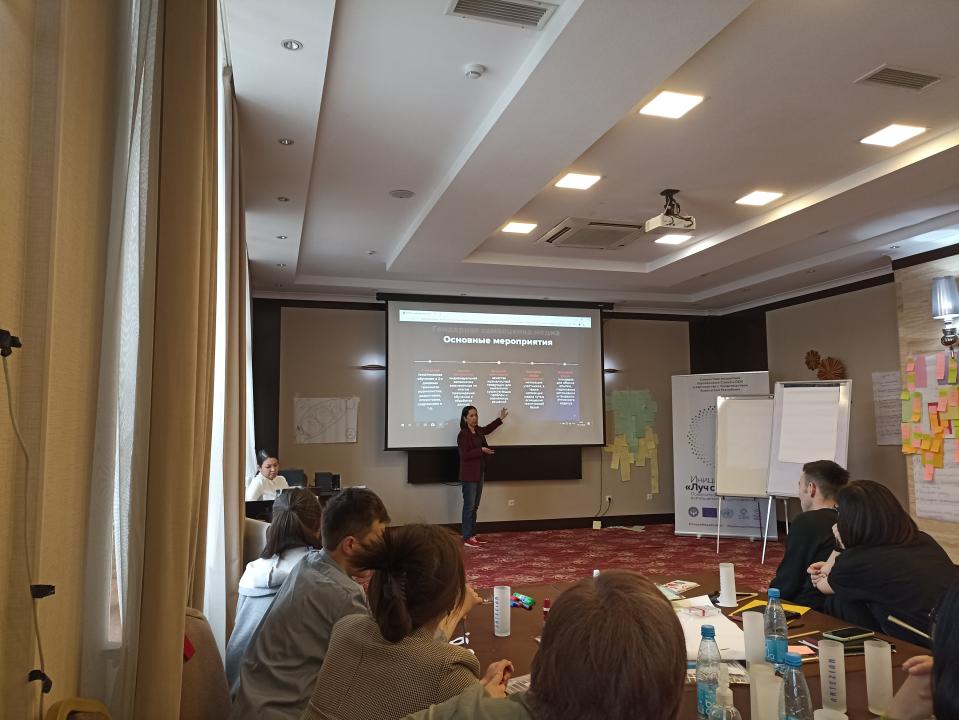In Kyrgyzstan, media training promotes gender-sensitive journalism

OSH, Kyrgyzstan − In 2020, Alibek Azhibekov began attending a series of workshops that would change his life and career.
As the former Programme Director and Content Maker at the regional Yntymak TV and Radio company, he understood the power of the media. But it wasn't until he attended a Spotlight Initiative-supported series of classes on gender equality that he began to think more deeply about the ways that journalism shapes attitudes towards women, girls and gender-based violence.
The workshops, run by UN Women and partner organization Media Sabak, presented a new perspective on gender equality, he says. They emphasized that domestic and family life must be a shared responsibility, and that the equal participation of men and women is the cornerstone of a harmonious home. They also explored the ways in which the portrayal of men and women in the media could reinforce or challenge stereotypes.
The seminars fostered a feeling of solidarity and Alibek was so inspired by the experience that he later became a trainer, teaching other journalists how to lead workshops. He also noticed a change in the content participants were producing.
“We started to dissect every aspect of our programmes, from headlines to final texts, ensuring gender equality was upheld," he says. "Instead of merely considering [a person's] age when filming, we began paying attention to gender balance, showcasing the importance of equal representation."
“We started to dissect every aspect of our programmes, from headlines to final texts, ensuring gender equality was upheld" - Alibek Azhibekov, Programme Director and Journalist
Striving for inclusiveness
One programme they produced after the training was "Elet demi" (The breath of the countryside), which highlighted the contributions of women and young people to their village's development.
Alibek also worked with an independent development organization, Helvetas, on gender equality training for couples, where he observed the positive impact of gender equality on relationships.
He heard stories of husbands embracing newfound skills and supporting their wives' endeavours, cementing his belief that gender equality enhances rather than diminishes familial bonds.
Throughout their work, Alibek and his team strived for inclusivity by conducting training in Kyrgyz and creating materials in two languages. Over six months, they trained civic activists and 17 local media outlets, catalyzing changes in the media landscape, from headlines to imagery.
A gender and ethics code
Following the training, all 17 media organizations, along with the Ministry of Culture, Information, Sports, and Youth Policy, developed and adopted a Gender and Ethics Code for Media.
This code mandates that all signatories incorporate gender-sensitive approaches in their work, but also in the workplace itself.
Alibek did this by ensuring gender balance among staff and promoting non-violent language. His efforts, combined with those of his colleagues, led to a cultural shift within their organization, fostering better relationships.
“My passion for family happiness drove my dedication to promote gender equality in media," he says.
"I realized that building strong relationships within the family, where everyone's wishes were considered, could ultimately lead to broader societal change.
"With the birth of my younger daughter, I could re-embrace my role as a father and partner, sharing household responsibilities to nurture a harmonious family dynamic."
Alibek's story serves as a reminder that change starts with us - at home and in our organizations. By working together, we can create a more equitable world.
The global Spotlight Initiative to eliminate violence against women and girls is a United Nations initiative in partnership with the European Union and other partners. It has been implemented in Kyrgyzstan since 2020.
By Gulaiym Shigaibaeva


